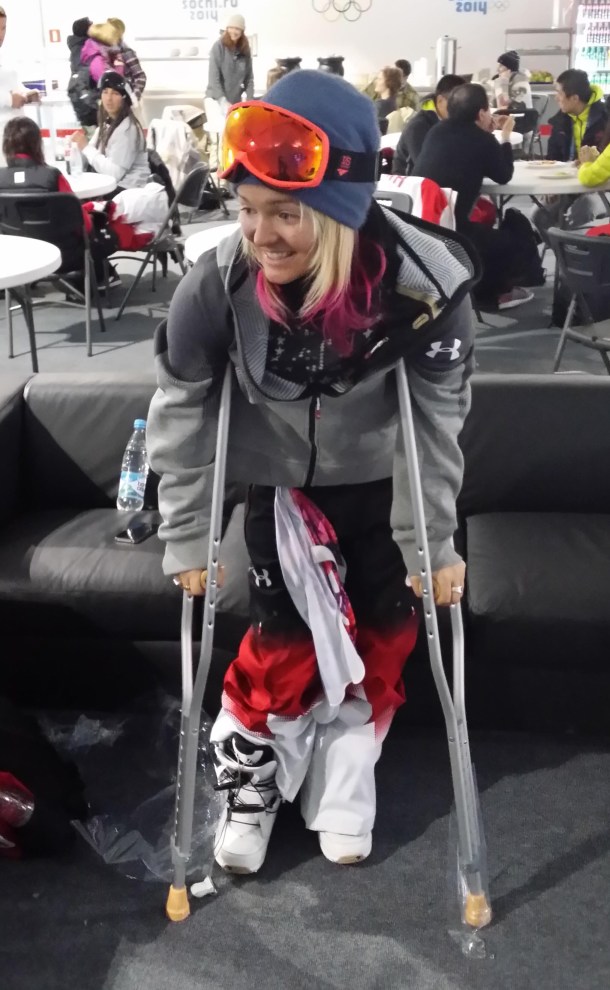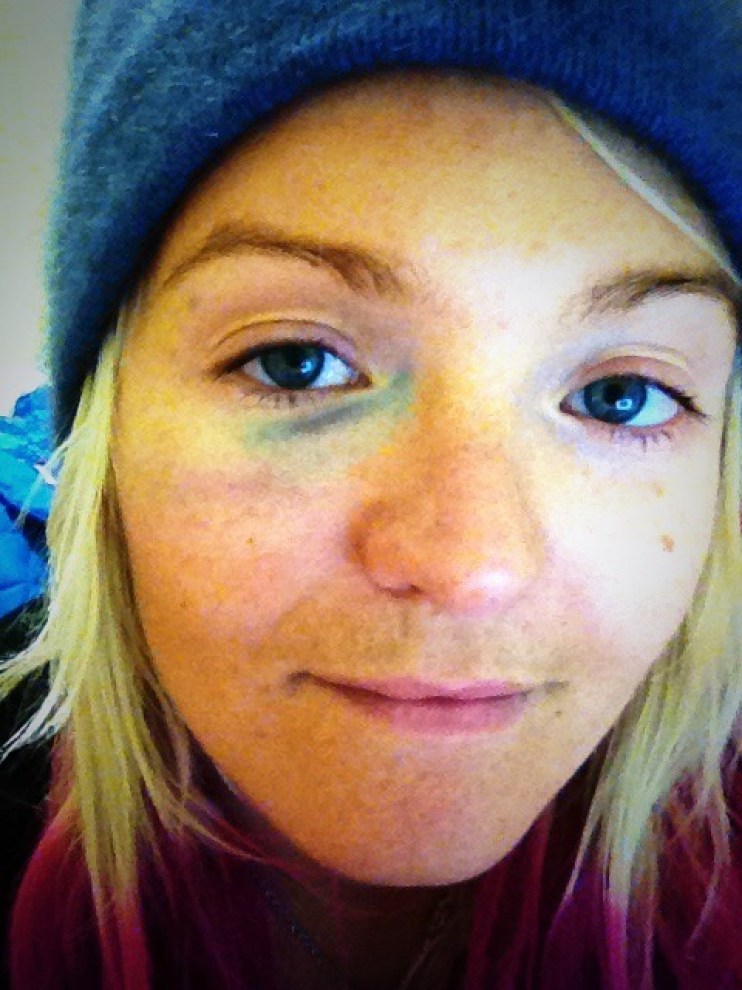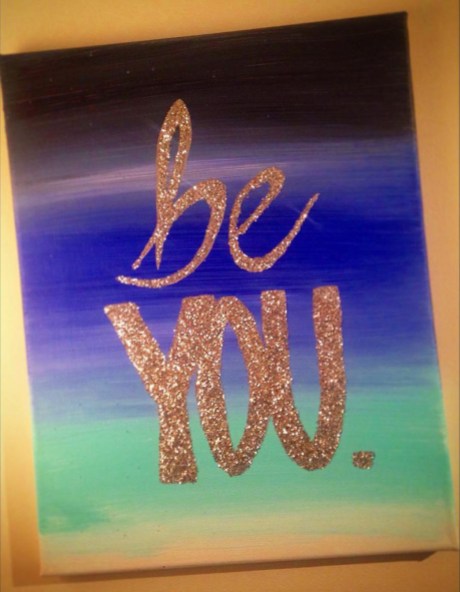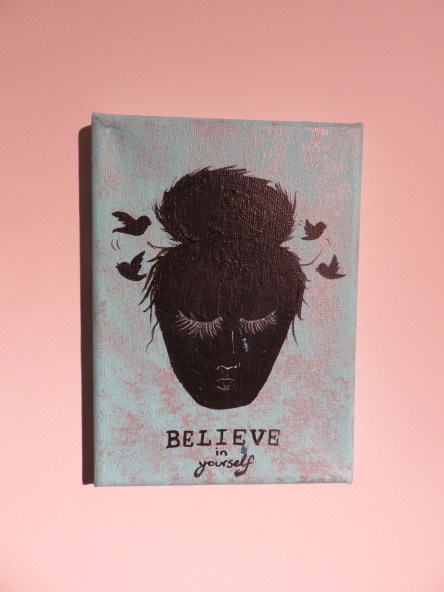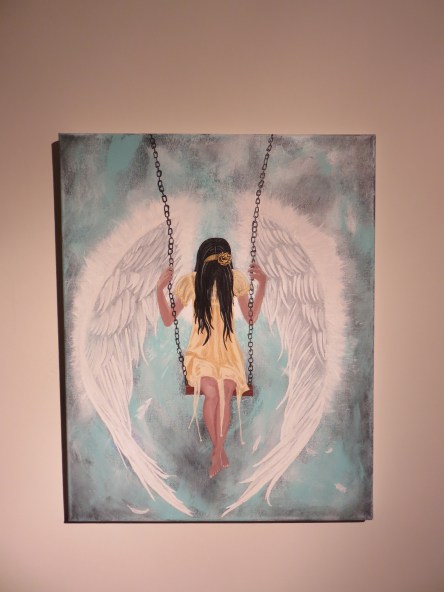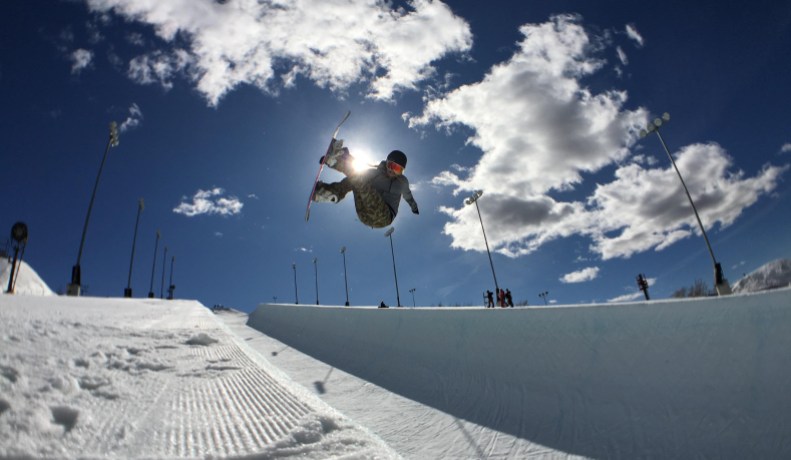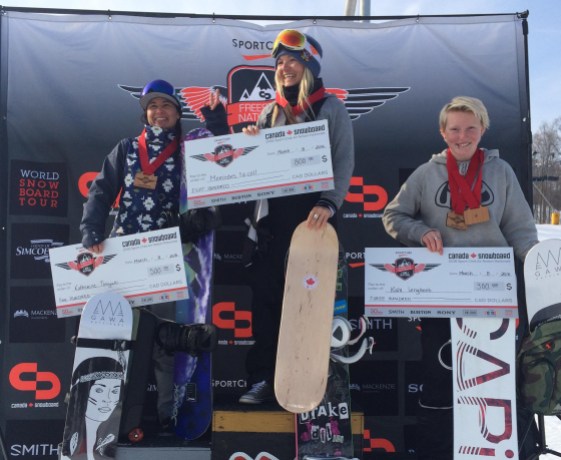In her own words: Mercedes Nicoll’s fight against depression
I’m not afraid to say that I suffer from depression.
I share my story because it’s okay to talk about what we are going through. We often pretend like we have amazing lives and that we’re perfect, when in actual fact, no one is. The more we open up and share, the more we understand about ourselves and are better able to help others. So let’s talk…
The Crash
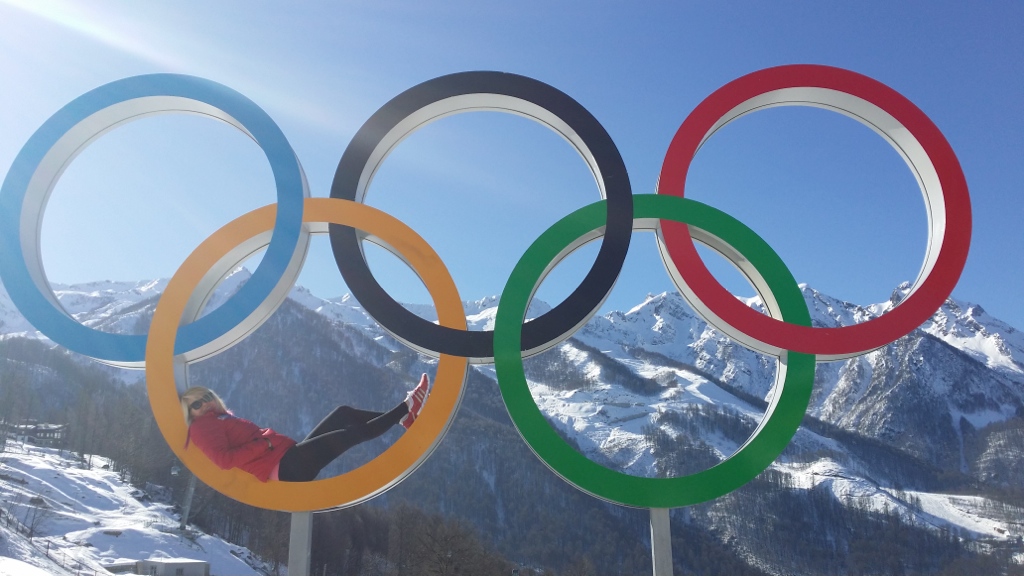
Mercedes lounges in the Olympic rings at Sochi 2014
It was the last five minutes of practice before the women’s halfpipe competition at Sochi 2014. I dropped in at full speed, going for a back 900 (two full rotations). But in an instant everything slowed down. As I reached the top of the wall, I knew something was wrong. The snow was too soft, and as I initiated my rotation, it gave way. Instead of a mellow crash landing on the deck, I was falling backwards, more than two storeys into the pipe. I hit the snow hard, first smashing my right hip then the right side of my face. I was winded, but I could move. In that moment the only thing running through my head was ‘Get up! Get up! You only have five minutes of practice left. GET UP!’
I competed, completing two runs in total agony with a badly bruised right hip and face, as well as a bunch of sprained ribs, two vertebrae out of place in my neck, and a mild concussion that turned out to be not so mild.
That night, I went to a club on crutches. I saw the bright lights, heard the loud music, and vomited.
I was about to endure the toughest part of my life.
The Depression
Things went downhill quickly when I got home to Whistler. I spent the better part of three months in a dark room.
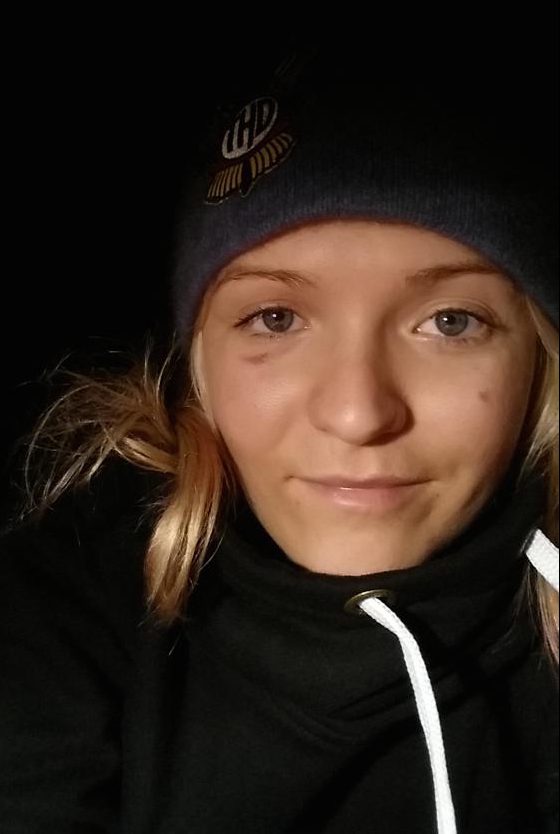
Mercedes in her dark room in Whistler during her concussion recovery
I would wake up every morning and look outside to a fog on a clear day with what felt like a hangover, a massive headache, a weird tingling in my head, nausea, and heightened emotions. I would sleep 10-15 hours a day and not feel rested at all. I lost muscle, balance, my personality, my sparkle.
“I know this was the darkest two years of her life, having to dig deep into herself to find out what she was truly made of.” – Dominique Vallée, Turin 2006 teammate
Things that were second nature became foreign. I took driving out of the equation completely. A walk that would usually take me 10 minutes now took over an hour. It felt like I was walking through jelly. Socializing was over-stimulating. It felt like I was in a room with thousands of people talking at me and I was unable to find any words to respond. I’m a very social person so not being able to hold conversations brought on solitude.
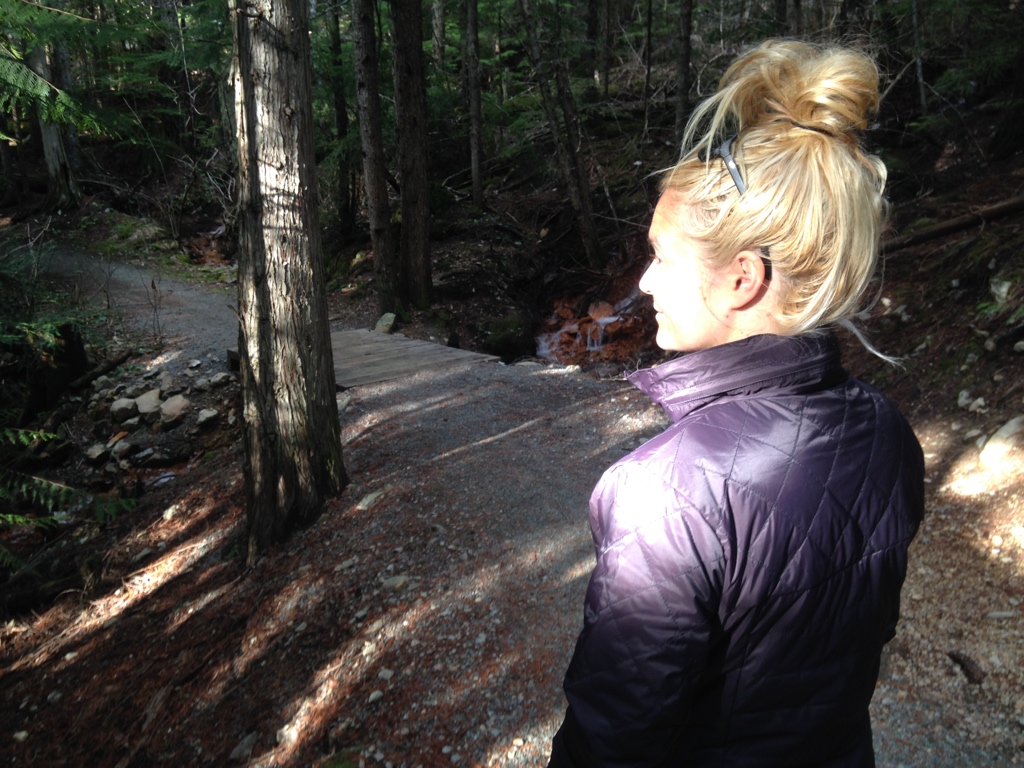
Mercedes takes a nature walk as part of her concussion recovery
I struggled with who I was. I’d been snowboarding and competing full time from the age of 14 and knew nothing else. Having sports, socializing, dancing, laughing taken away from me was painful and brought on darkness, depression.
The most terrifying and depressing time was every morning. The thing with a concussion is you never really know. It’s not like a broken bone, six weeks and you’re good. I didn’t have a cast and my black eye was gone. But I would wake up lost in a fog every morning, having no reason to wake up. I was waiting for the headaches to pass, waiting to heal.
I was scared that I wouldn’t get my sparkle back, that I would be lost in this foggy world forever. I went to counselling. I had to understand that I wasn’t the same person anymore. I had to find new hobbies. Long slow nature walks and painting became the new Mercedes.
But all I wanted was my old life back. I would pretend I was fine, put a fake smile on my face, all the while not sure if I would be able to get back to sports. It was in this time I realized I am an athlete, something I hadn’t truly recognized until sport was taken away from me.
Not all my days were dark. On some I would wake up feeling great, happy, like I could do anything and I could try activities again. But my body wasn’t what it used to be. I would push past my limits, sending myself back to the dark room time and time again.
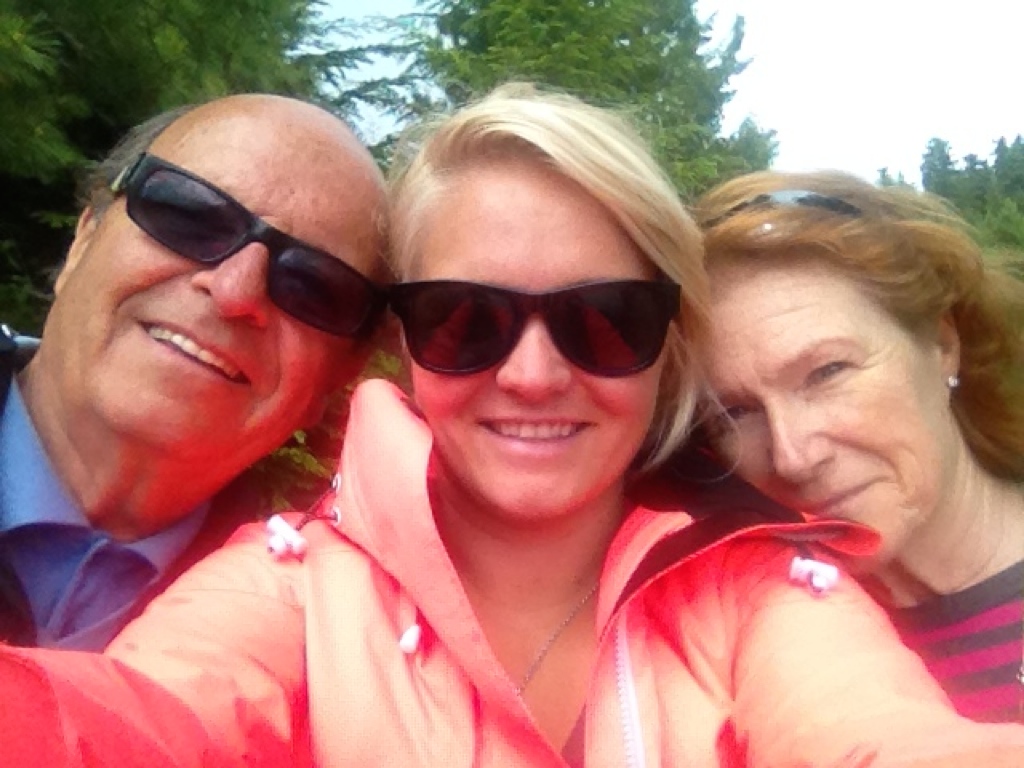
Mercedes with her parents, John and Alix
I had one doctor tell me this could be a career-ending injury. People doubted me, making me second guess myself, telling me I’m crazy for wanting to get back out there.
All I knew was that I was going to stay positive and I was going to get back on my board. I knew I had to work hard to overcome my fears and had to believe in myself when others wouldn’t. Finally, in January 2015 someone else believed in me.
“You’re going to make a full recovery.” – Dr. Andrew Howard, Neuropsychiatrist
Those words changed my life. I surrounded myself with positive people. I set the smallest goals of walking faster each day. I finally had a reason to wake up in the morning again. The dark fog was clearing and I could feel my sparkle coming back!
While I was depressed, I didn’t know I was depressed. I felt numb and lost my personality. I was a completely different person. Once I broke through that dark fog and had goals I was going to see through no matter what, I looked back and realized the numbness and missing personality was depression. Getting my full sparkle back was going to take patience, optimism, goals, and positivity.
“Depression was the scary part of this and being positive about all the small steps that it took for her to return from that dark place were essential.” – Alix Nicoll, mother
To this day, if I don’t have a reason to wake up in the morning it’s easy for me to fall back into the dark fog. I have to have goals and plans to keep myself going. I got my sparkle back and I want to keep it that way. It’s no easy task, but nothing comes easy!
The Comeback
By March 2015, it was time to get back to sport after more than a year of recovery. I needed to get back to the gym to get my muscles back.
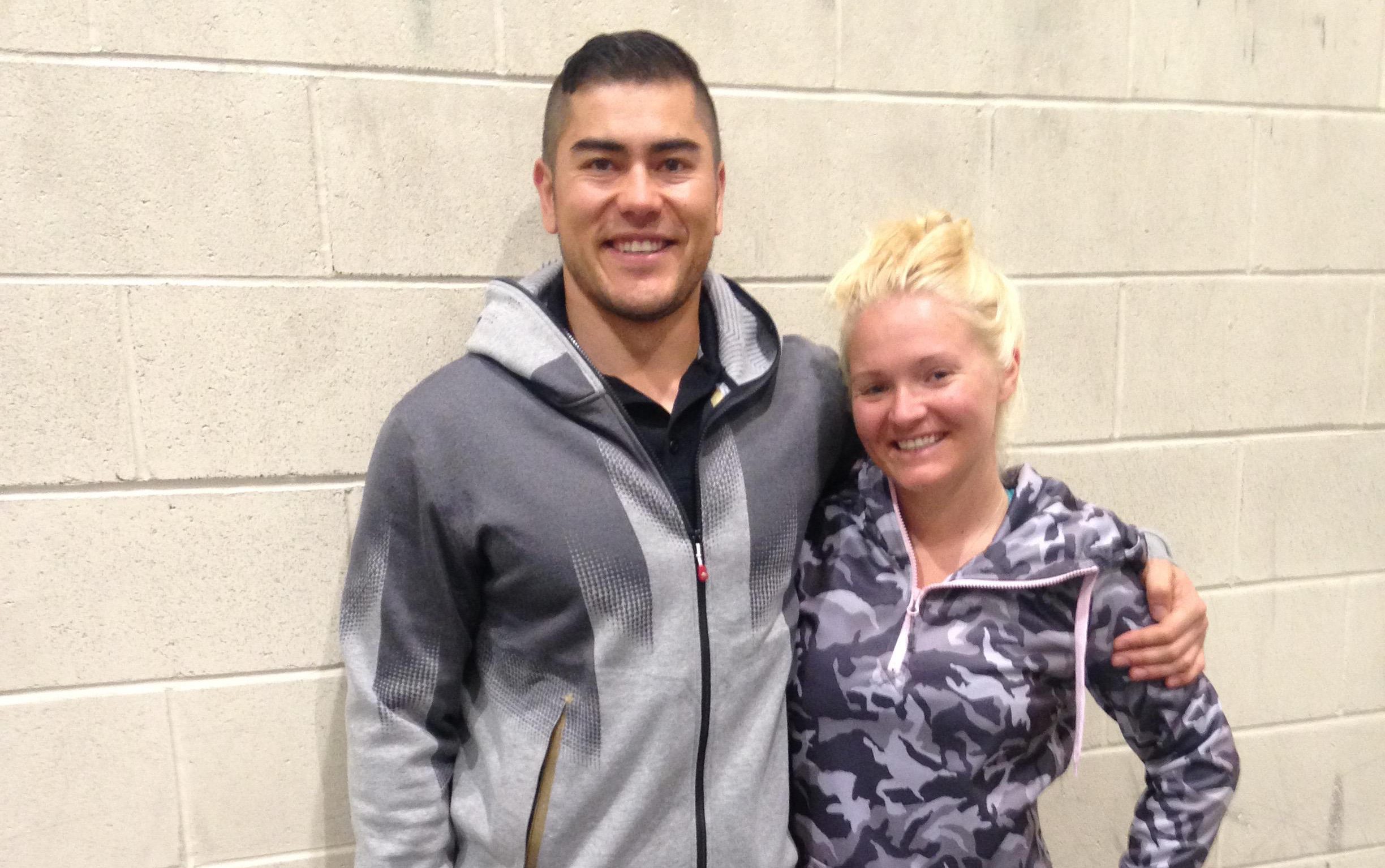
Mercedes with strength and conditioning coach Matt Fisher on her first day back in the gym
“The first training back was the first time I had ever seen fear in Mercedes’ eyes. It made me scared too. I had no idea what she would actually be able to do and neither did she. This next hour and a half was potentially make or break for her career. She pushed through. At the end of the session we were both more mentally than physically exhausted.” – Matt Fisher, Canada Snowboard Strength and Conditioning Coach
In January 2016 I had a serious mental challenge. I was getting back in the halfpipe! I was scared and excited at the same time, with no clue how things were going to turn out.
I had to overcome my fears and get back within the 22-foot walls that took me out. I started off small and worked my way up, getting most of my tricks back.
On January 31 I was off to Salt Lake City for my first competition since Sochi. After I successfully completed my first run in qualifiers – staying on my feet, doing my first 720 – I reflected on what I had just done. I had conquered my fears and was back doing what I love. Tears of joy streamed out.
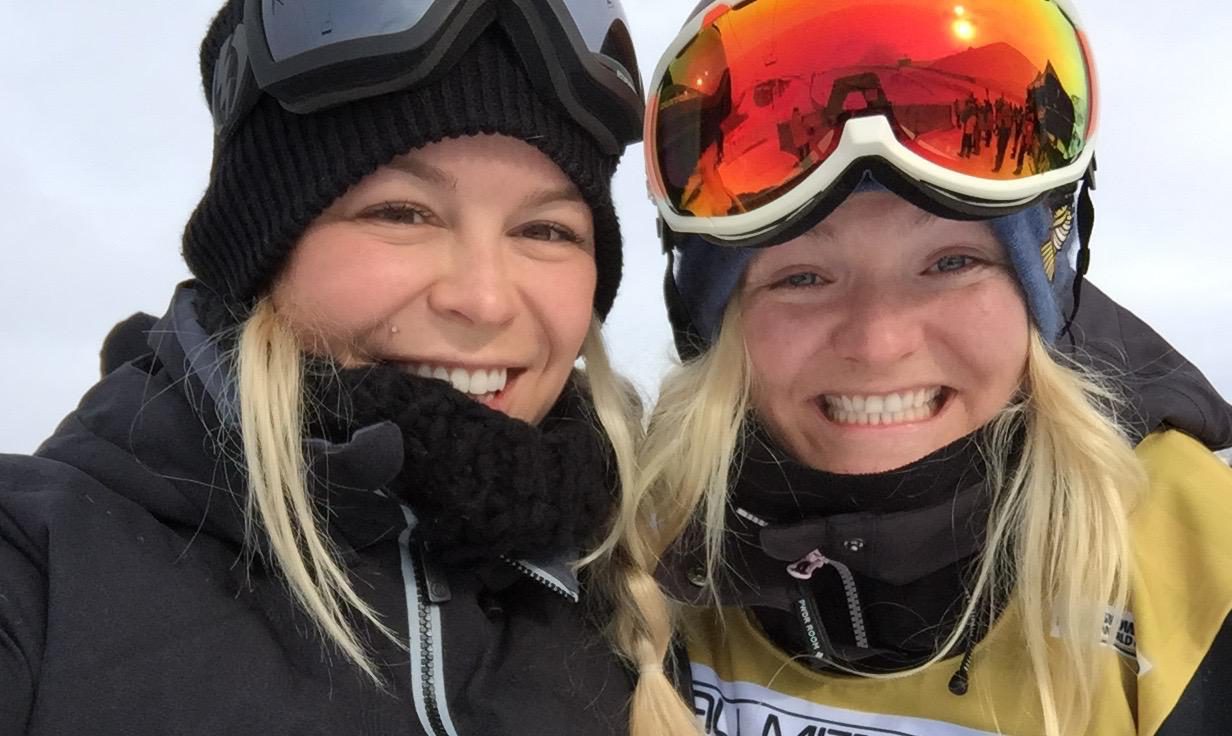
Mercedes with tears in her eyes after her first competitive run back following her concussion
“Now, a couple years after this injury her spark is back and that’s because she has put in the time to work with the best specialists to get her back to her vivacious self!“ – Kimmy Fasani, professional snowboarder
Nationals in March 2016 meant more to me than ever before. I’d won the title four times and wanted it back. Two years earlier I wasn’t sure I would snowboard again so standing on top of that podium gave me more hope for the year to come to pursue what I love and to keep challenging myself.
This is the hardest injury I have ever had to overcome. Through great darkness I found myself again. I don’t have a scar to show for it but I fought and worked hard to break through the darkness to get my smile and sparkle back. This journey was long but I learned patience, surrounding yourself with positive people, believing that you can, and celebrating small goals is the key. I’m proud to say I have my sparkle back.
Mercedes Nicoll is a halfpipe snowboarder and three-time Olympian who hopes to make it four at PyeongChang 2018.


